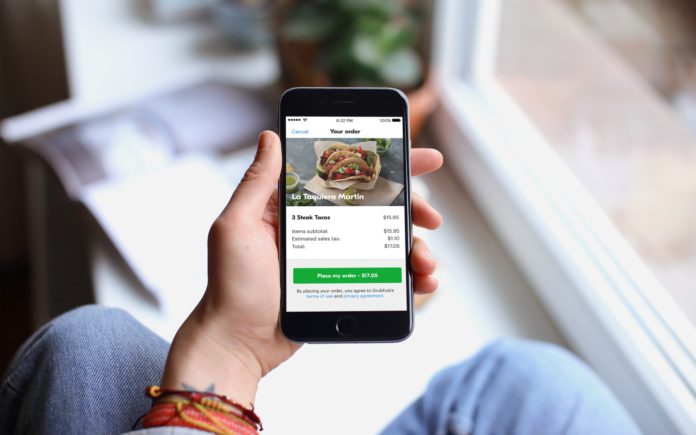
Eyes are now on Colorado after an Illinois judge ordered a stay in proceedings last week in a potential class-action lawsuit against food delivery giant Grubhub, Inc.
The judge cited a possible resolution in a Colorado class-action suit as the reason for the stay. The local lawsuit revolves around allegations that Grubhub advertised that some restaurants had closed or were not accepting online orders when they were in fact open and delivering food — just not with Grubhub.
In the now-paused Illinois case, Lynn Scott, LLC and the Farmer’s Wife LLC v. Grubhub, Inc., plaintiffs allege that Grubhub’s listing of a restaurant’s name or logo on its platform can result in the customers assuming a relationship between the two groups. If there is not a relationship, diners who have bad experiences might blame the restaurant, instead of Grubhub, for information they were provided.
The plaintiffs in the Illinois case objected to the stay, and Judge Marvin Aspen wrote in the order, “it is likely that a stay would simplify the issues in the case, even if the Colorado Action targets a narrower subset of conduct than targeted here, given the overlap discussed above and the fact that the Colorado Action may be settled in the near future.”
The Colorado class-action suit, CO Craft, LLC dba Freshcraft v. Grubhub, Inc., is just one of a handful of lawsuits levelled against Grubhub over practices on its website. That suit grew out of the pandemic, according to court records. Freshcraft, a locally owned small single-owner restaurant in downtown Denver, alleges that Grubhub listed incorrect information about the business on the company’s website.
On the company’s website, the total gross food sales to “local takeout restaurants” in 2020 was listed at $9 billion. Each day, the company processes over 658,000 daily orders and serves approximately 31 million active diners. The company claims it has provided over $4 billion in total driver tips to date. Freshcraft alleged that Grubhub’s practices deprived it, and businesses in similar situations, of potential business income.
The complaint asks for an order requiring Grubhub to discontinue its false advertising campaign and for damages and restitution to be paid to class members.
Freshcraft alleged that Grubhub’s pandemic advertising campaign included language saying restaurants were main parts of communities, and part of diners’ “family” that needed help because of the COVID-19 crisis. “They are counting on your takeout and delivery orders to help them through,” the complaint reads. “Because if we don’t treat restaurants like family today, they might not be around to treat us like family tomorrow.”
According to the original complaint, a Grubhub landing page appeared as the first search result in Google when users look up Freshcraft, at the time of the complaint’s filing last year. The listing also advertises that delivery or pickup from Freshcraft is available, including the text “Support your local restaurants with Grubhub!”
However, once a user clicked the link, they were met with a message saying, “This restaurant is not taking online orders. Try a similar restaurant nearby.” At that point, the website suggests similar restaurants who use Grubhub delivery.
“These landing pages present false information about non-contracted restaurants and are constructed purposely to steer potential customer interest to restaurants that contract with Grubhub,” according to the website Grubhublawsuit.com, set up by the plaintiff’s counsel to inform potential class participants.
“Grubhub is purposefully listing restaurants as closed or not taking online orders even though that is completely false,” the complaint states, adding that Grubhub didn’t contact Freshcraft to see if it was open or closed before advertising that Freshcraft wasn’t offering delivery.
The Illinois and Colorado lawsuits are just two of several launched against Grubhub around the country for its online practices. The Illinois suit involves two restaurants on opposite coasts that allege Grubhub was listing 150,000 restaurants on its site without the business’ permission, according to Eater, a food and dining news website. Just last week, Zay Toon, Inc., a corporation operating a restaurant in Las Vegas, filed a class-action complaint against Grubhub in Illinois alleging that, over at least the past nine years, Grubhub has withheld payments owed to restaurants by improperly deducting “commissions” for “sham telephone food orders, depriving more than 300,000 restaurants of revenues and profits.” The complaint also alleges that Grubhub justifies withholding revenue based on the length of a call, not when the call was generated by actual food orders.
In his order, Aspen wrote that by May 21, 2021, the parties in the Illinois suit should submit status reports advising the status of the Colorado action. “Once we have had a chance to review the above-referenced materials, we can revisit the stay.” An attorney for Freshcraft said last week that the parties were discussing a possible settlement and said more information would be forthcoming but did not comment further.

